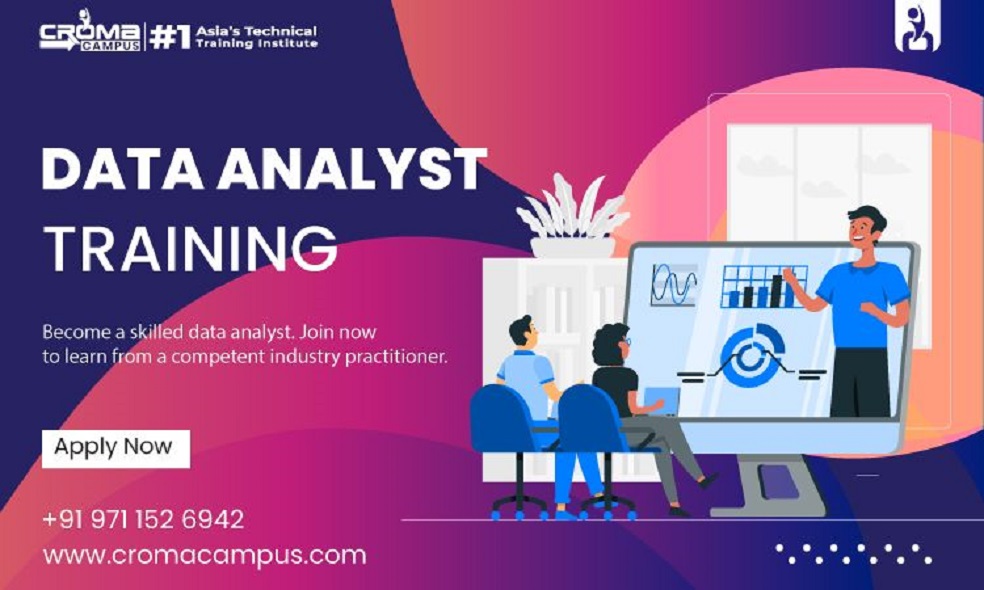Introduction
In the era of big data, the role of a Data Analyst has become integral to unlocking insights that drive informed decision-making for businesses and organizations. However, the path to becoming a proficient Data Analyst is paved with foundational skills and knowledge. To turn into a knowledgeable Data Analyst, you must get related with a legit provider of Data Analyst Online Course. This way, you will understand its basics right from the beginning.
Let’s now have a look at the prerequisites that aspiring Data Analysts should focus on to embark on a successful journey in the dynamic field of data analysis.
Prerequisites
- Educational Background:
While formal education in data-related fields is not always mandatory, having a strong educational foundation can be advantageous. Many Data Analysts hold degrees in fields such as:
- Statistics or Mathematics: A solid understanding of statistical concepts forms the backbone of data analysis.
- Computer Science or Information Technology: Familiarity with programming and data structures is valuable for handling and manipulating data.
- Data Science or Analytics: Specialized degrees provide a comprehensive understanding of the entire data analysis process.
Proficiency in Programming:
- SQL (Structured Query Language):
Proficiency in SQL is a fundamental prerequisite for Data Analysts. SQL is the language used to interact with relational databases, allowing analysts to retrieve, manipulate, and aggregate data efficiently.
Python or R:
While not always mandatory, having proficiency in a programming language like Python or R is highly beneficial. These languages offer powerful libraries and frameworks for data manipulation, analysis, and visualization.
- Data Cleaning and Wrangling Skills:
Data is rarely pristine; it often requires cleaning and preprocessing before analysis. Aspiring Data Analysts should be adept at:
- Identifying and handling missing values.
- Removing duplicates.
- Handling outliers.
- Transforming data into a usable format.
Tools like pandas (Python) or dplyr (R) are commonly used for data manipulation.
- Statistical Knowledge:
A strong foundation in statistics is crucial for deriving meaningful insights from data. Key statistical concepts include:
- Descriptive Statistics: Summing and explaining the main features of a dataset.
- Inferential Statistics: Making inferences about a population based as per sample.
A solid grasp of concepts such as probability, hypothesis testing, and regression analysis is essential.
- Database Knowledge:
Understanding databases and how to retrieve information is fundamental for a Data Analyst. This includes:
- Knowing the basics of database management systems.
- Understanding relational database concepts.
- Data Visualization:
The ability to effectively communicate insights through data visualization is a key skill. Data Analysts should be proficient in using visualization tools like:
- Tableau: A well-known tool for generating interactive and shareable dashboards.
- Power BI: Microsoft’s business analytics service for creating reports and dashboards.
Additionally, knowledge of libraries like Matplotlib and Seaborn (Python) can enhance visualization capabilities.
- Critical Thinking and Analytical Skills:
Data Analysts need to approach problems with a critical mind-set. This involves:
- Identifying patterns and trends in data.
- Asking the right questions to uncover insights.
- Thinking logically to solve complex problems.
- Effective Communication:
A significant part of a Data Analyst’s role involves conveying insights to non-technical stakeholders. This requires:
- Strong written and verbal communication skills.
- The ability to transcrbe technical findings into actionable insights.
- Storytelling with data to make findings accessible and compelling.
- Continuous Learning:
The field of data analysis is dynamic and ever-evolving. Aspiring Data Analysts should embrace a mindset of continuous learning, staying updated on:
- New tools and technologies.
- Emerging trends in data analysis.
- Best practices in the industry.
- Real-world Application:
Hands-on experience is invaluable for aspiring Data Analysts. This can be gained through:
- Personal Projects: Building a portfolio of data analysis projects.
- Internships: Gaining practical experience in a real-world setting.
- Networking: Engaging with professionals in the field and participating in data science communities.
Conclusion
Becoming a proficient Data Analyst requires a multifaceted skill set and a dedication to continuous learning. The prerequisites outlined in this write-up serve as a roadmap for aspiring analysts to build a strong foundation. Whether it’s through formal education, self-paced learning, or hands-on experience, each component contributes to the development of a well-rounded Data Analyst. As the demand for data-driven insights continues to grow, those equipped with these prerequisites will find they well-positioned to navigate the exciting and dynamic field of data analysis. So, do acquire Data Analyst Training in Delhi and then step ahead professionally in this direction. Well, obtaining its training will eventually strengthen your base knowledge and help you know its hidden facts.

